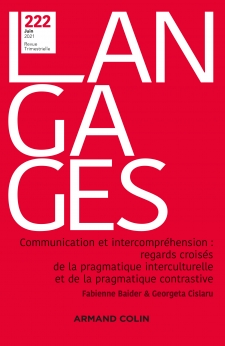
LANGAGES Nº 222 (2/2021)
Pour acheter ce numéro, contactez-nous
Recevez les numéros de l'année en cours et accédez à l'intégralité des articles en ligne.
Cet article s’inscrit au carrefour de la sociologie, de l’anthropologie, de la linguistique et de la pragmatique interculturelle. Il porte sur les compétences interculturelles et, plus particulièrement, sur l’humour comme stratégie de communication en milieu professionnel international. D’une part, nous donnons un aperçu des possibilités et des limites de l’humour dans les interactions entre personnes d’appartenances différentes. D’autre part, nous nous intéressons aux compétences clés de managers qui travaillent dans des contextes sociaux complexes. Nous présenterons d’abord un état des lieux sur l’humour dans le management international. Puis, sur la base d’une étude de cas, nous examinerons les fonctions et les effets de l’humour dans les interactions avant d’aborder la question des compétences de communication nécessaires pour travailler sur les scènes internationales.
This article falls within sociology, anthropology, linguistics and intercultural pragmatics. It is focused on intercultural competences and, more specifically, on humor as a communication strategy in the international workplace. Our goal is to provide an insight into the advantages and limits of humor in interactions between people of different affiliations. In this sense, the article aims at reflecting on the key skills of managers who work in complex social contexts. We first present an inventory of research papers on the subject of humor in international management. Then, based on a case study from an empirical research project, we examine the functions and effects of humor during the verbal and non verbal interactions of a multicultural team. In the end we address the question of the communication skills that are needed for working on the international stage.
